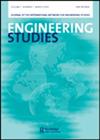Discursive Enactments of Knowledge Production in Engineering Education
IF 1.3
3区 工程技术
Q2 EDUCATION, SCIENTIFIC DISCIPLINES
引用次数: 1
Abstract
Engineering education is under the sway of wide-ranging dynamics and drifts that have bearing on how education is enacted in relation to the research and innovation obligations of universities. Academic, applied, and third mission drifts seem to configure higher education in new ways. The article sets out to critically explore how knowledge production is discursively enacted in the teaching-research-practice-nexus in engineering universities of applied science (UAS) in Denmark. This paradigmatic case study maps discursive positionings and discusses how these positionings aspire to transform engineering education in the light of the wide-ranging drifts in higher education. Based on 17 qualitative in-depth interviews with researchers, teachers, and managers, the article maps the discursive positions taken and not-taken in relation to the enactment of the teaching-research-practice-nexus. The exploration is guided by a theory-method-package inspired by situational analysis and interviewing methods developed in practice-based approaches as interview-to-the-double. The analysis identifies four discursive positions in the teaching-research-practice-nexus that enact knowledge production in engineering UAS differently. Furthermore, three unavailable discursive positions are identified. Interpretive flexibility makes different discursive enactments of knowledge production possible. The study concludes that (1) that the primary mission of UAS in Denmark is teaching; research and engagement with practice are subordinate missions; (2) that the applied and third mission drift has been effective in instituting alternative discursive enactments; (3) some positions are seemingly discursively illegitimate. The undisputability of the educational mission – and the applied and third mission drifts – seems to effectively outweigh academic drift in the Danish UAS.工程教育中知识生产的话语实施
工程教育受到广泛的动态和漂移的影响,这些动态和漂移影响到如何在大学的研究和创新义务方面实施教育。学术、应用和第三使命的漂移似乎以新的方式配置了高等教育。本文旨在批判性地探讨知识生产是如何在丹麦应用科学工程大学的教学研究实践关系中进行的。这项典型的案例研究描绘了话语定位,并讨论了这些定位如何在高等教育大范围漂移的情况下渴望改变工程教育。基于对研究人员、教师和管理人员的17次定性深入访谈,本文绘制了与教学-研究-实践关系的建立相关的话语立场。本次探索以情景分析和面试方法为灵感的理论方法包为指导,面试方法是在基于实践的方法中发展起来的,如对替身的面试。该分析确定了教学研究实践关系中的四个话语位置,它们以不同的方式体现了工程无人机的知识生产。此外,还确定了三个不可用的话语位置。解释的灵活性使知识生产的不同话语行为成为可能。研究表明:(1)无人机在丹麦的主要任务是教学;研究和参与实践是次要任务;(2) 应用和第三次任务漂移在制定替代性话语制定方面是有效的;(3) 有些立场似乎是不合法的。在丹麦无人机系统中,教育任务的无可争辩性——以及应用和第三个任务的漂移——似乎有效地超过了学术漂移。
本文章由计算机程序翻译,如有差异,请以英文原文为准。
求助全文
约1分钟内获得全文
求助全文
来源期刊

Engineering Studies
ENGINEERING, MULTIDISCIPLINARY-HISTORY & PHILOSOPHY OF SCIENCE
CiteScore
3.60
自引率
17.60%
发文量
12
审稿时长
>12 weeks
期刊介绍:
Engineering Studies is an interdisciplinary, international journal devoted to the scholarly study of engineers and engineering. Its mission is threefold:
1. to advance critical analysis in historical, social, cultural, political, philosophical, rhetorical, and organizational studies of engineers and engineering;
2. to help build and serve diverse communities of researchers interested in engineering studies;
3. to link scholarly work in engineering studies with broader discussions and debates about engineering education, research, practice, policy, and representation.
The editors of Engineering Studies are interested in papers that consider the following questions:
• How does this paper enhance critical understanding of engineers or engineering?
• What are the relationships among the technical and nontechnical dimensions of engineering practices, and how do these relationships change over time and from place to place?
 求助内容:
求助内容: 应助结果提醒方式:
应助结果提醒方式:


